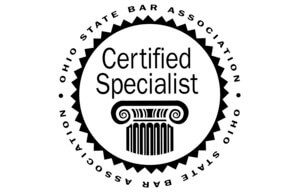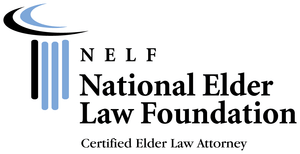New Ohio Estate Recovery and Lien Laws
/Sweeping changes to the Ohio Medicaid estate recovery and lien laws were enacted with the signature of Governor Taft to the budget bill (House Bill 66) on June 30, 2005. The nature of this law and its unfortunate effect upon Ohio seniors having catastrophic medical events and long-term care needs is largely unknown to the public due to its "midnight" insertion into the state budget process without independent legislation or discussion of its merits.
Federal Medicaid law requires participating states to seek recovery from a Medicaid recipient's estate for medical assistance consisting of nursing facility services, home and community-based services, and related hospital and prescription drug services. "Estate" is defined as including the real and personal property and other assets of the Medicaid recipient which is subject to state probate law. At the option of each state, the "estate" may be defined to be more inclusive, to the extreme of including any real and personal property and other assets in which the Medicaid recipient had any legal title or interest at the time of death (to the extent of such interest), including such assets conveyed to a survivor, heir, or assign of the deceased individual through joint tenancy, tenancy in common, survivorship, life estate, living trust, or other arrangement.
The effect of House Bill 66 is that Ohio joins about eighteen other states in adopting an expanded definition of "estate", and just the second state to adopt the most expansive definition permissible under federal law. Accordingly, whereas previously only the assets of the Medicaid recipient passing through probate was subject to recovery by the State, now any asset in which the individual had an interest at the time of death may be recovered by the State. This may include the house, life insurance and annuity benefits, in addition to survivorship accounts and trust assets. And unlike other states, Ohio's statute did not expressly limit the expanded recovery to the future. Therefore, Ohio may attempt to recover resources retroactively.
Fortunately, the federal law provides that no recovery may be made while the individual's spouse, child under 21 or disabled child is alive.
The new law also requires liens be placed on real property of a Medicaid recipient who is permanently institutionalized and against the real property of the recipient's spouse. However, no lien may be imposed if the one of the following persons lawfully resides in the home: recipient's spouse, child under 21, disabled child, or sibling who has an equity interest in the home and who resided in the home for at least one year immediately before the date of the recipient's admission to the institution.
There is a hardship provision that gives discretion to the State to waive recovery. However, current statutes only provide for waivers on a case by case basis and only in "compelling circumstances." A hardship waiver may involve either a permanent waiver of recovery efforts, or a temporary deferral or postponement of recovery. Disputes regarding undue hardship must be resolved through the judicial process.
The Collections and Enforcement Section of the Attorney General's office delegates some of its files to "special counsel" whose job it is to attempt recovery. Because these "hired guns" are paid a portion of what they recover, they sometimes exceed their authority in what is properly recoverable and in their methods of recovery. For instance, media reporting in Northeast Ohio has revealed to the public instances where counsel has sent bills to relatives of deceased Medicaid recipients requesting payment for several hundred thousand dollars, and suggesting convenient payment plans. Of course, the recipients of these letters were under no obligation to pay these bills simply because they were relatives or because they served as fiduciaries for the decedent.
The State may not attempt recovery or impose liens in instances not permitted by federal law. The scope of federal law has been determined individually in each state, often with stark contrasts in results. The parameters of proper estate recovery and lien imposition in Ohio will take years to develop through litigation in the courts.
This Firm anticipates that there will be a prevalent need for assistance when overreaching agents of the State attempt improper recovery of assets and place liens on real estate in questionable circumstances. We stand ready to zealously represent individuals faced with such difficulties and to help resolve and negotiate settlements with the State. However, the best course of action remains seeking competent elder law counsel ahead of time, so that the issue of estate recovery can be avoided altogether where possible.





